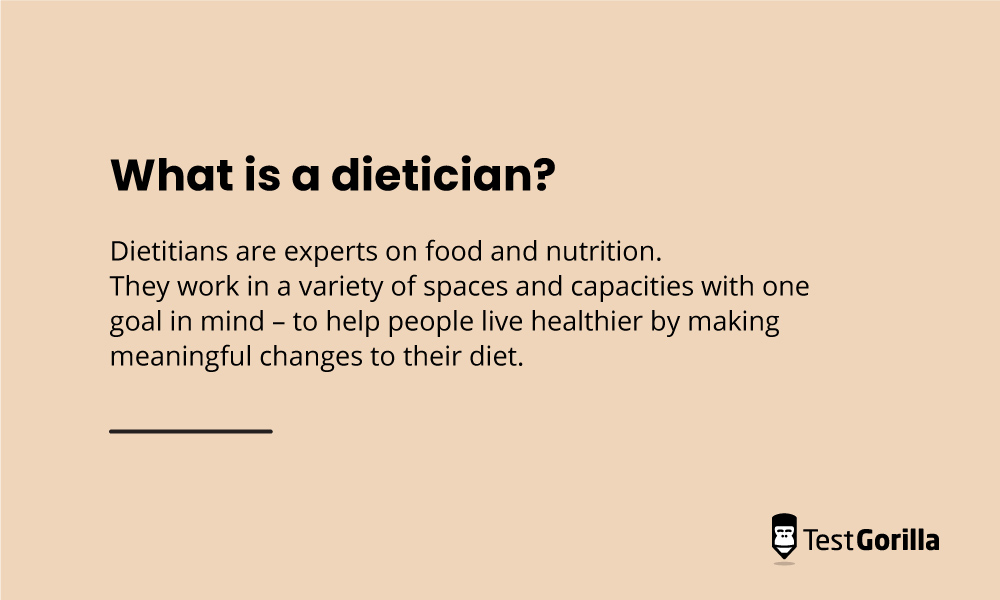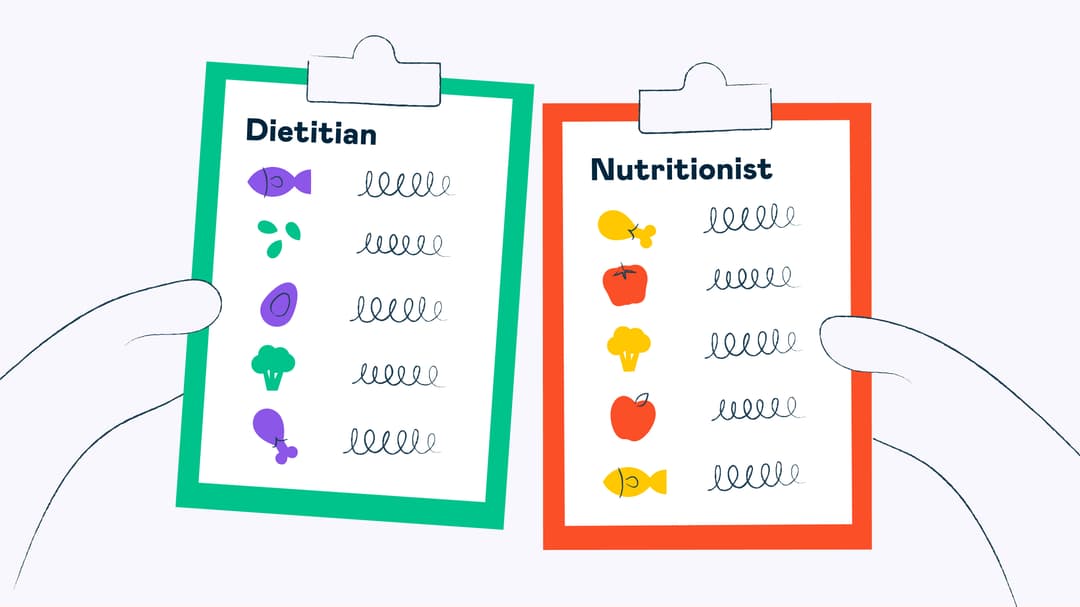All Categories
Featured
Table of Contents
The kinds of Nutritionists are: and. The former are those individuals who use the clinical approach to research nutrients, both as individual compounds and as they engage in food and nutrition while the latter are experts that aid in detecting the nutritional problems of communities and in discovering solutions to those troubles.
: They deal with wellness programs and global wellness organizations.: They are liable for large food preparation and service.: They are professionals in nutrition and aging. They are Board accredited in Gerontological Nutrition with the American Dietetic Association.: They are mainly involved with dietary relevant research study in the medical element of nutrition in disease states, public element on key, second and often tertiary health and wellness prevention and foodservice facet in issues involving the food gotten ready for clients.
What Is The Average Cost Of Manage Diabetes Through Diet Services?
: These act as source people for the media. Dietitians' experience in nutrition is usually taped for TV, radio, and papers-- either as an expert guest viewpoint, regular columnist or visitor, or for resource, dining establishment, or recipe growth and critique.: These job under exclusive technique. As discussed over, all dietitians are nutritional experts but not all nutritional experts have the credentials and certifications to be called dietitians.
This indicates precisely the very same thing as Registered Dietitian (RD), a term that has actually been in usage for a lengthy time. While accreditation to come to be an RD or RDN is regulated by the Academy of Nourishment and Dietetics a nationwide organization licensure is managed by private states.

In order to supply medical nutrition treatment and certify as providers for insurance coverage companies, a dietitian should be licensed by the state. According to the Bureau of Labor Stats, the need for dietitians and nutritionists is anticipated to raise by 20% in between 2010 and 2020 this is a much faster development price than the average for all occupations.
How Much Does Full Service Clinical Dietitian Cost?
There are considerable differences in settlement based upon field of expertise, with Medical Pediatric Dietitians and Milk Nutritionists balancing roughly $90,000. In 2014, The Bureau of Labor Statistics (BLS) found that the leading 10% of dietitians and nutritional experts gain even more than $79,000, and the bottom 10% less than $36,000 - Private Practice Dietitian. A mean per hour wage of $27.62 was computed for both industries, with the leading 10% earning over $38.00 per hour, and the bottom 10% earning listed below $17.00 per hour

There is a variety of tasks offered in various atmospheres for those that want to function with the public, as well as for those that favor more research-focused work. Many get right into one of these areas in order to help people live healthier lives which can be tremendously rewarding.
With current stats that one-third of the U.S. populace is overweight, as well as a a great deal of senior U.S. citizens, dietitians and nutritionists are most likely to have a more substantial role in the future. My Strategy places dietitians and nutritionists at # 53 in their happiness index of leading 300 careers with the greatest work fulfillment scores.
In addition to going to a recognized program, the majority of states call for dietitians to be licensed or to have specialist certification, or both.
Is It Worth Paying For Clinical Dietitian?
Your core classes might include: Food scientific research Chemistry Health treatment policy Clinical nutrition Biostatistics Microbiology Food service management You'll likewise need to finish a dietetic teaching fellowship.

And to progress in the field, you'll likely need a master's degree. Whether composed in legislation or not, dietitians and nutritional experts lots of times require a comparable education and learning. Common bachelor's degrees for nutritional experts consist of nutrition science or a relevant discipline, such as dietetics, kinesiology, food system management, or biochemistry. Some of your programs may consist of: Fads in nourishment Biomedical statistics Scientific nourishment Food, nutrition, and habits Nutritional ecology Area nourishment Physiology Some degree programs consist of teaching fellowships, yet in others you'll have to locate chances by yourself.
The variety of hours you'll require might rely on needs in the state where you'll work. Whether you plan to gain a credential or otherwise, it's a great idea to complete at least one teaching fellowship to gain important experience before looking for a permanent function. Licensing and certification requirements for nutritionists and dietitians vary from state to state.
What Is The Best Gut Health Nutritionist Service?
A specialist certification shows your knowledge and knowledge in your field. Here are the leading certifications for dietitians and nutritionists.
The titles are basically the very same. There's no professional difference between them, and you're free to pick which one you wish to utilize based upon personal choice. To take the qualification examination, you must: Make a bachelor's degree that's recognized by the ACEND Complete a dietetics teaching fellowship After Jan. 1, 2024, you'll require to make a master's degree to get approved for the qualification.
What Are The Best Diabetes Dietitian Companies?
Bureau of Labor Statistics places dietitians and nutritionists in the very same category and states they make a median yearly wage of $69,680. But there is an array in salaries, with the lower 10% around $44,910 and the top 10% around $98,830, according to the BLS. Nutritional expert and dietitian functions are expected to expand 6.6% via 2032, according to the BLS.
This does not imply that profession transcends to the other, as they both have different functions and certifications that might often overlap. If you wish to discover more regarding what makes these careers distinct, keep reading. Diet professionals are experts that aid improve the top quality of life with healthy food selections.
How Much Does It Cost To Hire A Personal Trainer And Dietitian?
Nutritionist guidance regarding nourishment's influence on wellness. They aid individuals embrace healthier means of eating and produce tailor-maked strategies based upon goals. Their solutions include nutritional analysis and coaching, meal planning and creating healthy and balanced consuming programs. Although some have official education and credentials, others might have a lot more fundamental accreditations. The area is much less regulated than diet professionals; thus, nutritional experts' levels of competence and certifications can differ.
There are several differences between diet professionals and nutritional experts. Right here are the training and history specifications. Diet professionals commonly hold a bachelor's level in dietetics, nourishment, or a relevant field. As their careers development, several diet professionals seek postgraduate degrees, like a Master's or Doctorate, to be experts in details areas of nutrition. Dieticians must carry out supervised sensible training as component of their education and learning to gain hands-on experience in medical settings, community nutrition programs, or food service monitoring.
Latest Posts
A Better Pregnancy Nutritionist?
What Is The Best Registered Dietitian Nutritionist Company?
Dietitian For Food Allergies – Mandurah